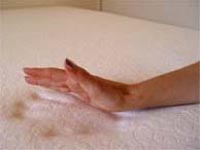
Twiss interferometry offers new approach for remote sensing
A team from the University of Rochester has shown that fluctuations in "twisted light" could be exploited for a range of applications, from detecting rotating black holes to object detection by lida ... more
|  |

More accurately measuring distances between planetary nebulae and Earth
A way of estimating more accurate distances to the thousands of so-called "planetary nebulae" dispersed across our Galaxy has just been announced by a team of three astronomers based at the Universi ... more
|  |

 'Unprecedented' emissions maps will hone mitigation
'Unprecedented' emissions maps will hone mitigation

 Sudan's historic acacia forest devastated as war fuels logging
Sudan's historic acacia forest devastated as war fuels logging

 Deadly Indonesia floods force a deforestation reckoning
Deadly Indonesia floods force a deforestation reckoning

|  |

Glass beads, meteorite fragments hold secret to working on asteroids
The secret to planetary formation and working on asteroids lies in a handful of glass beads and meteorite fragments.
These materials are the main component for the Astromaterials Research and ... more
|

Russia's space exploration 'reviving' despite sanctions, budget cuts
The next decade will be marked by a renaissance in Russian space science, an article in Science magazine read. Moscow is working on a number of projects, including Moon exploration, a mission to Mar ... more
|  |

Stars strip away atmospheres of nearby super-Earths
Even a super-Earth can fly too close to the sun, according to a new study. An international team of astronomers has found a new category of planets beyond our solar system whose atmosphere has been ... more
|
 |

Tiny CubeSat tracks worldwide air traffic
Since its launch six months ago, a satellite small enough to fit in an airline passenger's carry-on bag has been tracking aircraft in flight across the entire globe. Built for ESA by GomSpace in Den ... more
|  |

SwRI-led team identifies clathrate ices in comet 67P
For decades, scientists have agreed that comets are mostly water ice, but what kind of ice - amorphous or crystalline - is still up for debate. Looking at data obtained by ESA's Rosetta spacecraft i ... more
|
 How to reach Alpha Centauri in just 20 years
How to reach Alpha Centauri in just 20 years






